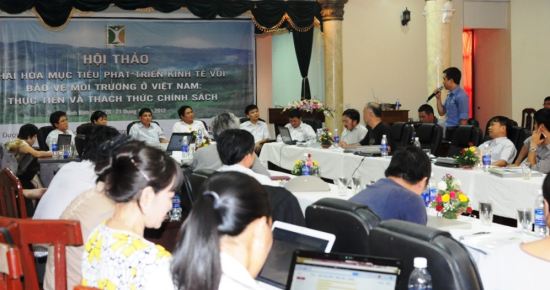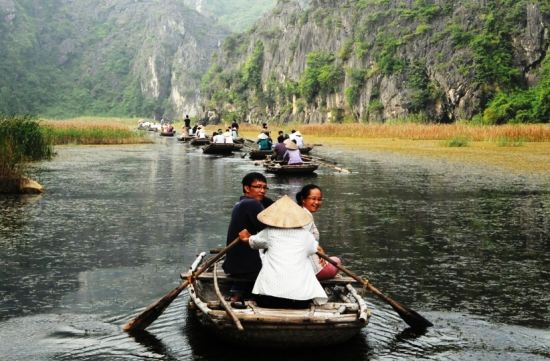A representative from PanNature suggested clearly defining the non-profit status of science and technology organizations to facilitate research, technology transfer, and application. This clarity would also enhance international collaboration and attract funding.

Eco experts back ‘green economy’
The rapid industrialisation and economic development of Viet Nam over the last 25 years has created a negative impact on the environment according to Nguyen The Chinh, deputy director of the Institute of Strategy and Policy on Natural Resources.
Chinh made the statement in an appearance at a one-day workshop titled “Harmonising Economic Development and Environment Protection in Viet Nam: Practice and Policy Challenges”.

Journalists and policy researchers share their views. Photo: PanNature.
He said that the development process led to problems with the ecosystem and that climate change will hugely affect Viet Nam, and added that solutions must be sought that improve the situation without compromising the economic growth rate.
Those present at the workshop, including 20 researchers and 50 representatives from the United Nations Development Programme, the Asia Foundation and the Ministry of Natural Resources and Development, and NGOs discussed methods to both develop the economy effectively and protect the environment across the country.
Chinh drew attention to efforts already being made, particularly in rural areas, to find methods that combine environmental protection with macro economic development.
He also gave his backing to the green economy scale, a fiscal proposal recently submitted to the Prime Minister, which prioritises spending for sustainable growth, social welfare and environmental protection.
But he admitted that this new model scale faces challenges if it is to be imposed. “Before we can approach a new green economy scale we must establish a whole new economic growth model. Its main tasks should be ecosystem restoration and the establishment of a low-carbon society establishment,” the deputy director said.
 Workshop participants visit the Van Long Nature Reserve, where local communities
Workshop participants visit the Van Long Nature Reserve, where local communities
take part in ecotourism activities and conservation of natural resources. Photo: PanNature.
Participants discussed measures that would be needed if the scale is enforced. These include raising awareness, investing in modern technologies, reforming the tax system and committing two per cent of the annual state budget to ecosystem restoration.
* The workshop “Harmonising Economic Development and Environment Protection in Viet Nam: Practice and Policy Challenges” was organized by PanNature with generous financial support from the Critical Ecosystem Partnership Fund (CEPF).



